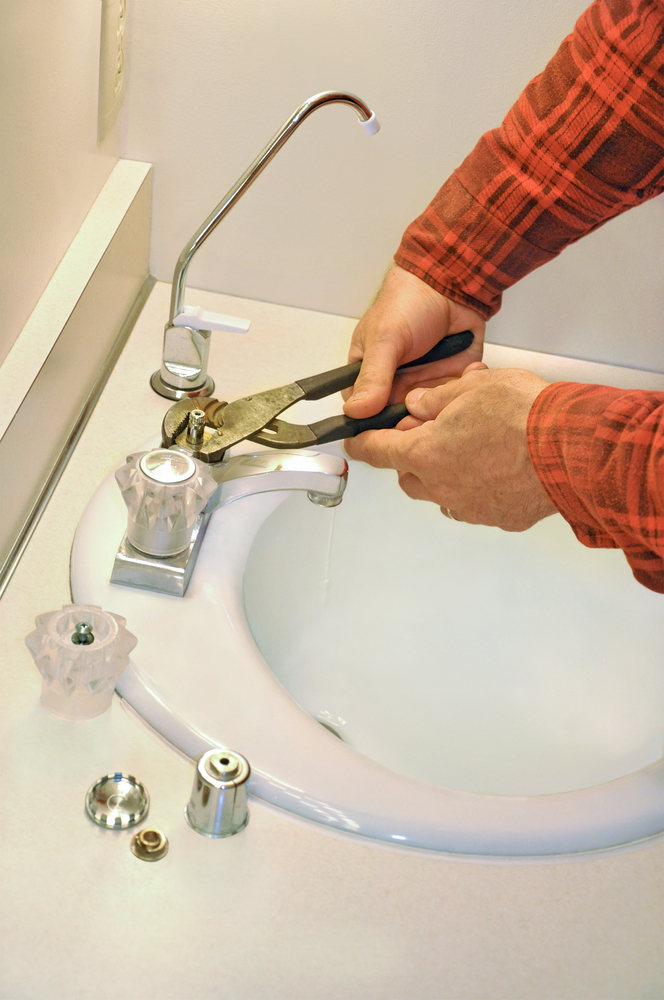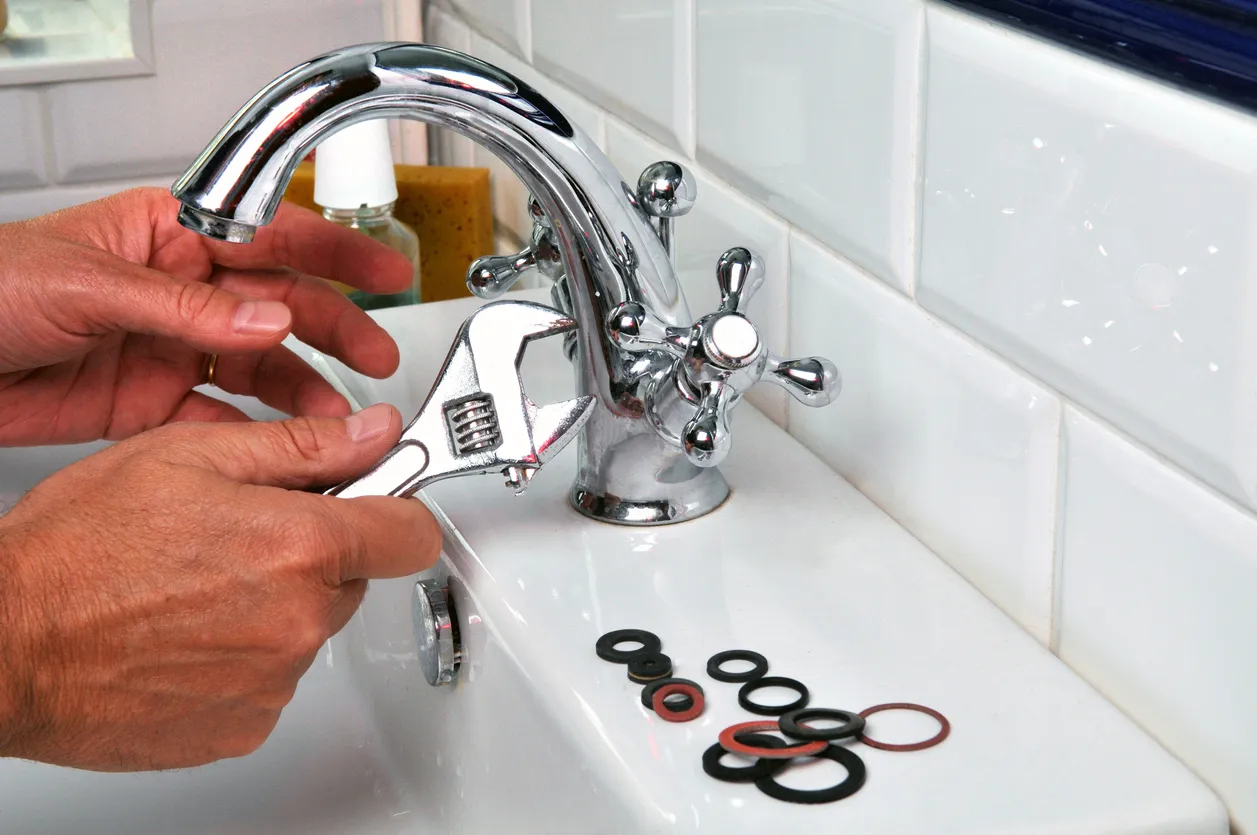Understanding the Value of Dealing with a Dripping Faucet
Understanding the Value of Dealing with a Dripping Faucet
Blog Article
Do you find yourself hunting for information around Water Dripping from Faucet: Why and How to Fix?

Dripping faucets might seem like a minor aggravation, but their influence exceeds simply the inconvenience of the audio. From wasting water to incurring unneeded financial expenses and health and wellness dangers, disregarding a dripping tap can lead to different repercussions. In this article, we'll look into why it's crucial to address this common household issue quickly and successfully.
Waste of Water
Environmental Impact
Trickling faucets contribute substantially to water waste. According to the Epa (EPA), a solitary faucet dripping at one drip per second can squander greater than 3,000 gallons of water each year. This not just pressures water resources but additionally affects environments and wild animals based on them.
Financial Expenses
Boosted Water Bills
Past the ecological influence, trickling faucets can blow up water expenses substantially. The built up wastage in time translates right into greater energy costs, which could have been avoided with timely fixings.
Possible Building Damages
In addition, extended dripping can cause damage to fixtures and surfaces surrounding the tap. Water accumulation can create discoloration, corrosion, and also architectural problems if left unattended, causing extra repair costs.
Wellness Worries
Mold and Mold Development
The consistent visibility of dampness from a leaking tap creates an excellent environment for mold and mildew development. These fungi not just jeopardize indoor air quality yet also posture wellness dangers, specifically for people with respiratory system problems or allergic reactions.
Waterborne Illness
Stagnant water in leaking taps can become a breeding ground for microorganisms and other microorganisms, raising the risk of waterborne illness. Pollutants such as Legionella microorganisms thrive in stagnant water, potentially bring about serious diseases when consumed or breathed in.
DIY vs. Expert Repair work
Pros and Cons of DIY Repair Service
While some might attempt to repair a leaking tap themselves, do it yourself repair services feature their own set of difficulties. Without appropriate expertise and devices, do it yourself attempts can intensify the issue or result in incomplete repair work, lengthening the trouble.
Benefits of Working With a Professional Plumber
Hiring an expert plumber makes certain that the underlying source of the leaking faucet is addressed successfully. Plumbers have the competence and equipment to detect and fix faucet problems successfully, conserving time and reducing the threat of more damages.
Step-by-Step Overview to Fixing a Dripping Faucet
Devices Called for
Prior to trying to take care of a dripping faucet, collect the necessary devices, consisting of a flexible wrench, screwdrivers, substitute components (such as washers or cartridges), and plumber's tape.
Common Faucet Issues and Their Solutions
Determine the type of tap and the details concern creating the drip. Common issues include worn-out washing machines, rusty valve seats, or damaged O-rings. Describe producer instructions or online tutorials for step-by-step support on fixings.
Safety nets
Routine Upkeep Tips
To stop dripping taps, execute regular maintenance such as cleansing aerators, checking for leakages, and changing worn-out components immediately. Furthermore, consider mounting water-saving gadgets or upgrading to a lot more efficient components.
Importance of Prompt Services
Addressing leaking faucets as quickly as they're discovered protects against additional water wastage and prospective damages, eventually conserving both water and money over time.
Influence On Property Worth
Assumption of Well-Maintained Home
Preserving a residential or commercial property in good condition, consisting of resolving upkeep issues like dripping faucets, enhances its regarded value and worth among potential customers or tenants.
Influence on Resale Value
Qualities with well-maintained plumbing components, consisting of faucets, command greater resale values in the property market. Dealing with dripping taps can contribute to a favorable impression throughout property examinations and negotiations.
Environmental Duty
Private Payment to Conservation
Taking obligation for dealing with trickling taps aligns with wider initiatives toward water conservation and environmental sustainability. Every individual's actions jointly make a substantial effect on protecting priceless sources.
Lasting Living Practices
By focusing on punctual repair services and taking on water-saving behaviors, individuals add to lasting living techniques that benefit both present and future generations.
Final thought
Dealing with a leaking tap exceeds plain convenience; it's an important action towards preserving water, minimizing monetary prices, and guarding wellness and property. Whether through DIY fixings or specialist assistance, taking action to take care of leaking taps is a tiny yet impactful method to promote responsible stewardship of sources and add to a much healthier, much more lasting future.
How to Fix a Leaky Faucet: Step-by-Step Repair Guide
A leaky faucet may seem like a simple annoyance, but if it's not fixed promptly, that leak could cost hundreds to potentially thousands. From water damage to mold, mildew, and high water bills, even a tiny leak can be catastrophic if left unattended. Damage like this can even affect the overall value of your home, so it's important to take the right approach for leaky faucet repair. You may need the help of a plumber in some cases, but we've got a few tips you can try on how to fix a leaky faucet before calling the pros.
Four Faucet Types
When you're learning how to fix a leaky faucet, the first step is knowing what kind of faucet you're working with! There are four common types.
Cartridge Faucets
Cartridge faucets come in one- or two-handled varieties. In one-handled cartridge faucets, hot and cold water combines in a single cartridge. In the two-handled versions, hot and cold water are controlled separately and mixed in the faucet.
Ball Faucets
Ball faucets have a single lever you push up and down to adjust the pressure and rotate to change the temperature. A slotted metal ball controls the amount of water allowed into the spout.
Compression Washer Faucets
They're the oldest type of faucet, but they're still used in many homes — especially older ones. Compression faucets have two separate handles that, when turned, raise or lower the washer that seals a water valve. This valve stops water from flowing through the faucet when it is turned off.
Disc Faucets
Disc faucets rarely need to be repaired due to their maintenance-free design. The water flow is controlled by two discs — the upper one raises and lowers against a fixed lower disc, creating a watertight seal. If your disc faucet starts leaking, you may need to replace the seals or clean residue buildup from the inlets.
Fixing a Leaky Faucet
Step 1: Turn Off the Water
Whether you're learning how to fix a leaky bathtub faucet or how to fix a leaky kitchen faucet, always turn off the water supply to your working area when you're fixing a leak. The last thing you want is a flood added to your list of things to fix.
Look for the shutoff valves below your sink or around the tub and turn them clockwise to stop the water flow. If your faucet doesn't have shutoff valves, you may need to turn off the water for the whole house. Check to make sure it's off by turning the faucet on. If nothing comes out, you're ready to start the repair.
Step 2: Take Apart the Faucet
How you disassemble your faucet depends on the type of fixture you have. You can use a flathead screwdriver to remove the caps on top of the handle or handles for cartridge and compression faucets. Inside, you should see handle screws. Unscrew these with a screwdriver to remove the handle.
Disc- and ball-style faucets will typically have an inlet screw near the handle, and removing that will reveal the interior of the faucet.
Detach the Valve Stem
For cartridge- and compression-style faucets, you'll see the inner valve stem or cartridge once you remove the faucet handles. If you have a compression faucet, unscrew the brass valve stem. If you have a cartridge faucet, pull out the cartridge. If your cartridge has been in place for a while, it may require some tools or extra force to remove it due to mineral deposits.
Examine and Replace Parts
Once you've removed the parts, check them out to confirm what needs to be replaced. You may see corroded rubber washers, O-rings, stems, or cartridges. On a ball-style faucet, check the seats and springs for damage.
If you need to repair a leaky disc faucet, check the inlet and seals on the lower disc.
Once you determine what parts must be replaced, visit your local hardware store. Bring the damaged parts with you to ensure you can purchase the correct components to replace them.
Clean Valves and Faucet Cavity
If you've removed a stem or cartridge, you may notice mineral buildup in the faucet's threads. Use white vinegar to clean the valve seat by soaking it for a few minutes, then scrub it away with a soft toothbrush and rinse with warm water. You can also clean the interior of the faucet in the same way.
Reassemble the Faucet
Once your faucet is cleaned and the required parts have been replaced, it's time to reassemble it. Put the pieces back together and slowly turn the water supply back on. Doing this slowly is crucial because too much initial water pressure can damage the new hardware you've just installed.
https://homewarranty.firstam.com/blog/how-to-fix-leaky-faucet

I stumbled upon that blog posting on Water Dripping from Faucet: Why and How to Fix while surfing around the web. Be sure to set aside a second to promote this content if you appreciated it. Thanks a bunch for your time. Come back soon.
Report this page